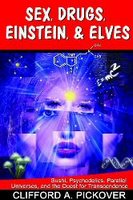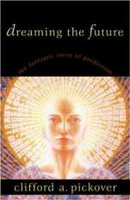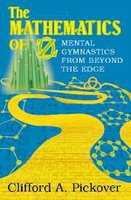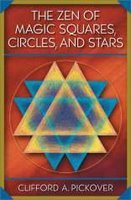Saturday, February 25, 2006
Martin Gardner's God
While critical of organized religions, Gardner believes in God, claiming that this belief cannot be confirmed or disconfirmed by reason. At the same time, he is skeptical of claims that God has communicated with human beings through spoken or telepathic revelation or through miracles in the natural world.
Martin Gardner's philosophy may be summarised as follows: There is nothing supernatural, and nothing in human reason or visible in the world to compel people to believe in God. The mystery of existence is enchanting, but a belief in The Old One comes from faith without evidence. However, with faith and prayer people can find greater happiness than without. If there is an afterlife, the loving Old One is real. [To an atheist] "the universe is the most exquisite masterpiece ever constructed by nobody", from G. K. Chesterton, is one of Martin's favorite quotes.
Gardner says in Skeptical Inquirer, "Shortly before he died, Carl Sagan wrote to say he had reread my Whys of a Philosophical Scrivener and was it fair to say that I believed in God solely because it made me "feel good." I replied that this was exactly right, though the emotion was deeper than the way one feels good after three drinks. It is a way of escaping from a deep-seated despair. "
Source 1, Source 2
Tuesday, February 21, 2006
On the Nature of Satan

Many of you may picture the devil as ruler of hell, inflicting physical and mental pain on others. But this portrayal of the devil is nowhere in the Bible. In the Bible, the devil is just another captive.
Jews and Christians refer to the devil as Satan, a fallen and arrogant angel. In parts of the Old Testament, Satan is not God’s enemy but rather a challenger or accuser. The word devil comes from the Greek diabolos, meaning "slanderer," or "accuser." The word Satan is the English transliteration of a Hebrew word for "adversary" in the Old Testament.
In the Old Testament, Satan gambles with God about the faith of Job. Later, in the New Testament, Satan becomes the "prince of devils" and has names such as Lucifer (the fallen angel of Light), Belial (lawless), or Beelzebub (Lord of Flies):
All the people were astonished and said, "Could this be the Son of David?" But when the Pharisees heard this, they said, "It is only by Beelzebub, the prince of demons, that this fellow drives out demons." (Matthew 12:24-27) What harmony is there between Christ and Belial ? What does a believer have in common with an unbeliever? (2 Corinthians 6:15-16)
For Christians, Satan’s job is to tempt man to commit immoral acts. Moselms believe in Iblis, the personal name for the devil. They also call him ash-Shaytan, which means the demon. In the Koran, God tells Iblis to bow in front of Adam, the first human. Iblis refuses.
Seven Old Testament books and every New Testament writer refers to Satan. In the Middle ages, theologians debated about how a supernatural being like Satan could exist in a universe governed by an omniscient, omnibenevolent, omnipotent God. Many came to believe that Satan was not an actual being but a symbol of evil.
Thursday, February 16, 2006
Noah's Ark
Saturday, February 11, 2006
Why Being an Atheist is Reasonable
If I were to suggest that between the Earth and Mars there is a china teapot revolving about the sun in an elliptical orbit, nobody would be able to disprove my assertion provided I were careful to add that the teapot is too small to be revealed even by our most powerful telescopes. But if I were to go on to say that, since my assertion cannot be disproved, it is intolerable presumption on the part of human reason to doubt it, I should rightly be thought to be talking nonsense. If, however, the existence of such a teapot were affirmed in ancient books, taught as the sacred truth every Sunday, and instilled into the minds of children at school, hesitation to believe in its existence would become a mark of eccentricity and entitle the doubter to the attentions of the psychiatrist in an enlightened age or of the Inquisitor in an earlier time." -- Bertrand Russell
Why Religion is Not Always A Great Thing
Read more
Tuesday, February 07, 2006
Nine Angelic Ranks
First comes God. Next come:
1. SeraphimWho in the heck is this pseudo-Dionysius fellow? Scholars believe he was a Syrian monk. Known only by his pseudonym, he wrote numerous Greek treatises that blended Christian theology and mysticism. Pseudo-Dionysius believed that God was essentially unknowable.
2. Cherubim
3. Thrones
4. Dominions
5. Virtues
6. Powers
7. Principalities
8. Archangels
9. Angels
 Godlorica
Godlorica

























